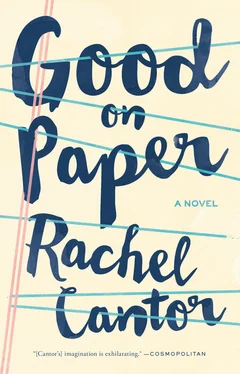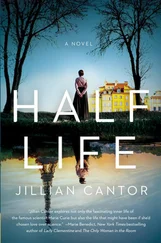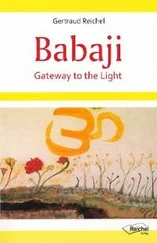You told him you were interested in me, didn’t you?
I may have, he said.
I turned to go back to the kitchen. Incredible! Romei was trying to fix us up!
•
The Ukraine Writers’ Union? Absurd! Benny said, and laughed. Romei’s work was never published in the Soviet Union. It was everything they despised.
That had never occurred to me.
He turned a hostile audience there into an appreciative one, Benny said. Just as he tried to do with you.
I hadn’t thought of that either.
He claims to have sent me those earlier sections? As if he’d written them in, what, 1987?
The names of Esther’s Midrash friends! Peshat, Remez, Drash, and Sod? Those are the four levels of biblical hermeneutics: the literal, allegorical, moral, and symbolic. There’s a Hebrew acrostic that refers to these four levels— Pardes , or Eden. He’s trying to help us understand how to read his work!
More disbelief: He said we went to her mother’s nursing home? We did no such thing! Esther’s mother died in Esther’s childhood home. And left her not a penny. It was your aunt, what’s-her-name …
Emma?
No, Elisheva.
Same difference.
It was Elisheva who sent her the obituary.
Emma had my mother’s address?
I guess so. You have another aunt?
Just Emma.
That’s her, then. Your namesake.
I’m named after Emma?
No, sorry, your Grandma Melody. She never did a Jewish thing in her life, but she couldn’t forgive Esther for naming you after her. She said Esther put a curse on her. Jews don’t name their children after the living, but Esther didn’t know that. She was just trying to make her mother happy. She wasn’t a nice woman, your grandmama. Her Hebrew name, of course …
Was Shira. For song, melody .
I leaned back on the couch. I couldn’t believe how devastated I felt. I’d thought my mother had named me for some higher purpose, to communicate something of her aspirations for my life, to instill in me through the magic of naming an aptitude for love. I’d found in my name a secret pocket of regard, a message left by her after decades of silence. I’d dared imagine a bond between us, based on this, something we held in common: the desire to love and love well. But no: I was named for her mother, who never forgave her for it.
Emma knew where my mother was and said nothing? I said.
You didn’t ask.
I didn’t ask? She hated my mother! Why would I think she knew where my mother was?
Blood is thicker than water. Or so I’m told.
Blood?
Sisters, Benny said.
Sisters? Emma is my father’s sister.
Shira.
What do you mean? How do you know?
How do I know? Esther refers to Elisheva as my sister Elisheva . She’s baal t’shuvah , right?
Huh?
“Returned” to orthodoxy. That’s what they call themselves: “masters of return.”
That’s her.
She’s there now, in Rome, helping out. She’s been there since September.
Emma’s in Rome? I asked stupidly. I couldn’t incorporate this into my consciousness. I can’t believe you know more about my family than I do, I said finally.
Benny shrugged. Nothing you can’t learn if you want to.
What else do you know?
Benny looked at me, kissed my hand.
You look like Esther, he said, you look like your mother.
•
Eventually, Benny stopped interrupting.
It’s beautiful, he said, when I finished the section where Romei describes Esther to herself. A complete fiction, but it says something true.
Like what?
Like about how we love.
By trying to imagine the other’s experience.
By putting ourselves in their shoes, yes. About how Romei learned to love.
How he thinks I should love.
Obviously. Your grandmother’s regrets, the too-late visit to the nursing home, these are not-too-subtle hints, when you look at them a certain way.
When you know it’s fiction you can look at it this way. I’d assumed it was “true.”
Then I realized another reason for including Benny in the story: so he could prove Romei’s story a fiction, so I could eventually interpret it, make it my own.
Also, Benny said, how difficult the work of loving is.
I hadn’t thought of that.
Romei’s task of trying to see the world through Esther’s eyes is gargantuan, he said.
And incomplete. He hasn’t finished when he gets the call about her illness.
She is sick, Benny said. She does have lupus.
I didn’t say good , because I didn’t think that, but I was glad to know that something in Romei’s story was real. Then wondered if this wasn’t part of his plan: the one “true,” unchanging, always-reliable fact, visible in the photo he sent me and verifiable by Benny: Esther’s sickness unto death. Lest I forget. I was about to share this observation when I realized that Benny was crying into my translation.
I kept forgetting: Esther was a real person, loved by my love.
Honey! I said. I am so sorry! and lifted his face to mine; his tears now falling from my cheeks.
This isn’t about Esther, he said, after a moment. It’s about Romei. I wish you knew what he’s really like. He’s such a wonderful, loving soul. He wrote this section partly for me, you know. You don’t realize this. It’s his gift. You can’t see this, can you?
I watched him, astonished, prepared to listen, to save my reaction, whatever it might be.
Benny said nothing.
Explain, I said. I’d like to understand.
He just shook his head.
54. THE INDISPENSABLE PIVOT

Later that night, Benny called.
I’d like to explain, he said.
Talk to me by the window, I said. I put on my father’s robe and lifted the shade. Across the avenue, I could see Benny’s backlit silhouette.
Romei made me important in Esther’s life, he said. Her confidant, her study partner. He’s given me something of her to hold on to, for after she dies. A vision of what I meant to her.
Oh, sweetie, I said, and felt myself begin to tear.
There’s more, he said, and I could hear he was choking up again.
Tell me, I said, putting my hand on the glass, as if that would bring me closer.
It’s terribly Freudian, he said, and laughed weakly.
Yes?
Well, he knows about my father, how my father thought I was … well, a loser, you know. He knows that I view him — Romei, I mean — as a father figure. Do you see what he’s done?
He’s made you the indispensable pivot around which his story turns. The one he turns to when he loses Esther, the only one who can help. The child as father of the man.
You see, he said.
I see.
I’m sorry I woke you, he murmured. I feel rather foolish.
I love you, I said, surprised to hear myself say it.
Really?
With all my heart, it seems.

We always celebrated Thanksgiving with Dotty and Jeanette. Jeanette and Ahmad would tug war over fixings, Jeanette preferring traditional fare — string bean casserole with cornflakes — Ahmad preferring the exotic: millet-shitake stuffing with chestnut-and-caper sauce. Jen stopped by a week before to make sure Thanksgiving was on, with or without the one who could not be named.
I’ll take care of everything, she said, and got out her Day-Timer.
I can help, I said.
Читать дальше













